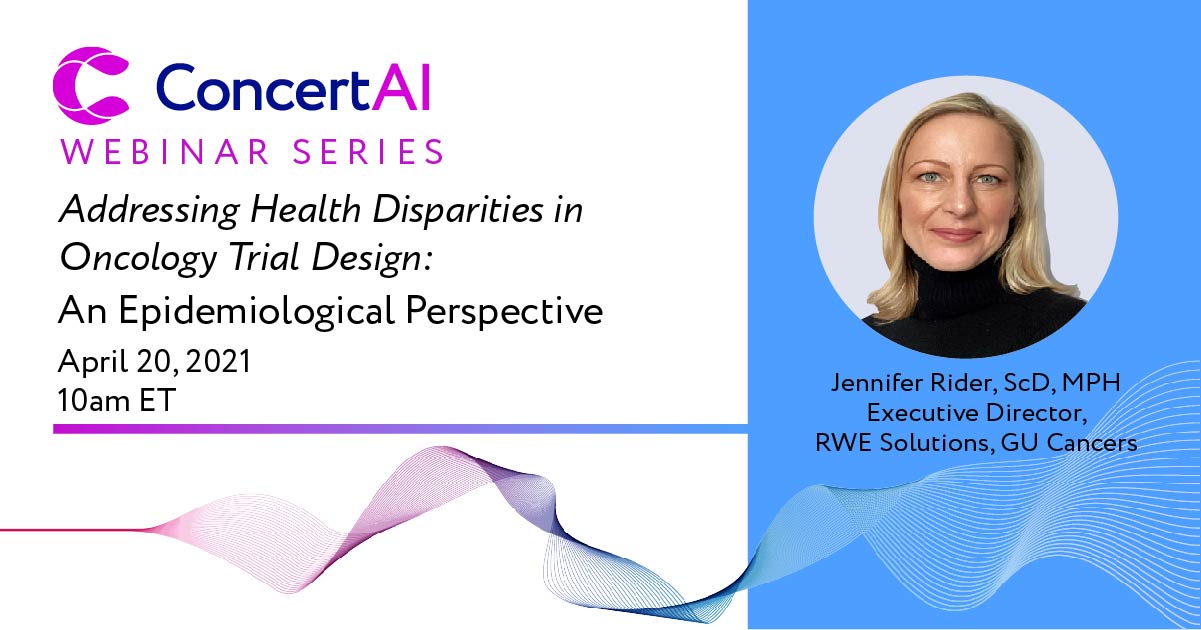About the Speaker
 Jennifer Rider, ScD, MPH, is an epidemiologist with nearly 20 years in oncology research. Prior to joining the company in 2020, she was an Assistant Professor in the Department of Epidemiology at the Boston University School of Public Health, where she taught graduate coursework in cancer epidemiology and epidemiologic methods. Jennifer’s research focused primarily on prostate cancer risk factors and tumor biomarkers, and resulted in more than 90 peer-reviewed publications. In 2013, she was the recipient of a Prostate Cancer Foundation Young Investigator Award. At ConcertAI, Jennifer uses her strong methodological background and deep knowledge of genitourinary cancers to lead HEOR and ECA studies for life science customers. Jennifer earned a doctorate in epidemiology from the Department of Epidemiology at the Harvard T.H. Chan School of Public Health, and holds an MPH from the University of Massachusetts-Amherst.
Jennifer Rider, ScD, MPH, is an epidemiologist with nearly 20 years in oncology research. Prior to joining the company in 2020, she was an Assistant Professor in the Department of Epidemiology at the Boston University School of Public Health, where she taught graduate coursework in cancer epidemiology and epidemiologic methods. Jennifer’s research focused primarily on prostate cancer risk factors and tumor biomarkers, and resulted in more than 90 peer-reviewed publications. In 2013, she was the recipient of a Prostate Cancer Foundation Young Investigator Award. At ConcertAI, Jennifer uses her strong methodological background and deep knowledge of genitourinary cancers to lead HEOR and ECA studies for life science customers. Jennifer earned a doctorate in epidemiology from the Department of Epidemiology at the Harvard T.H. Chan School of Public Health, and holds an MPH from the University of Massachusetts-Amherst.
